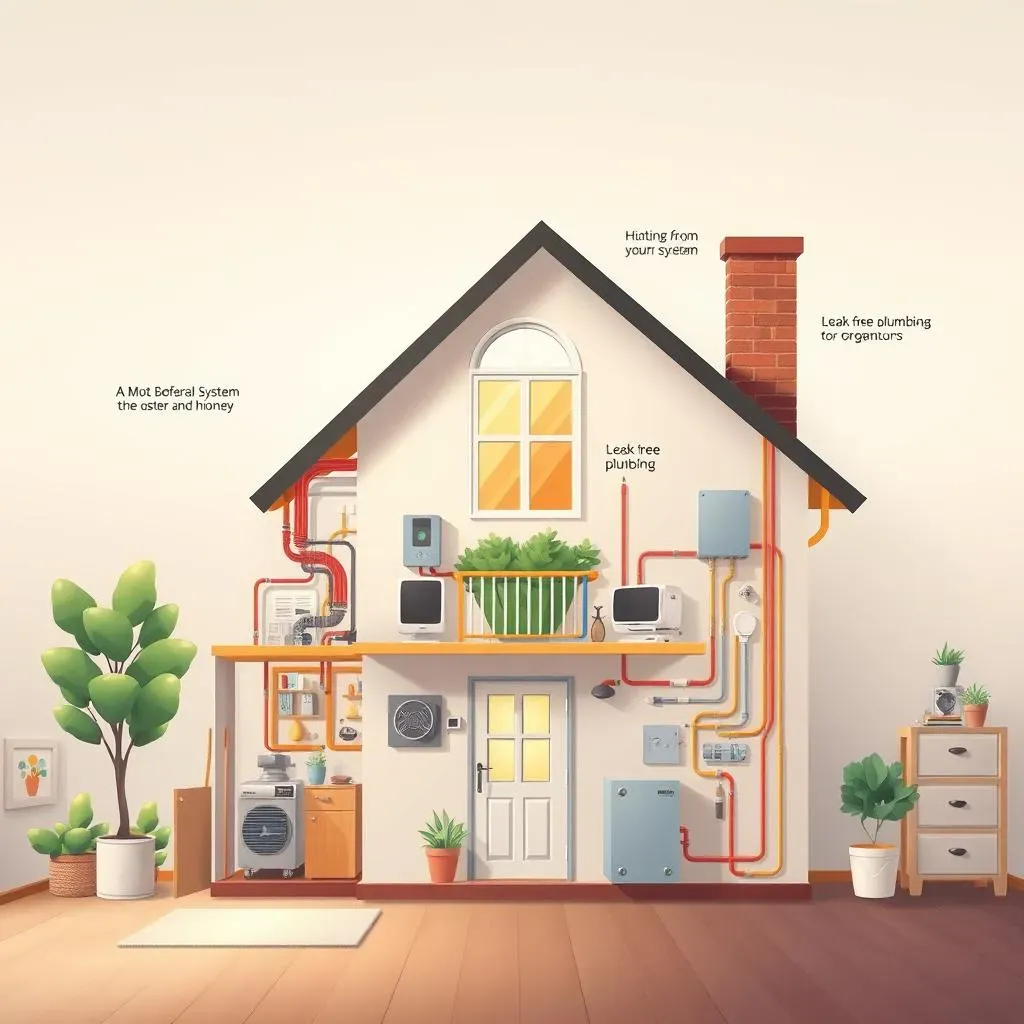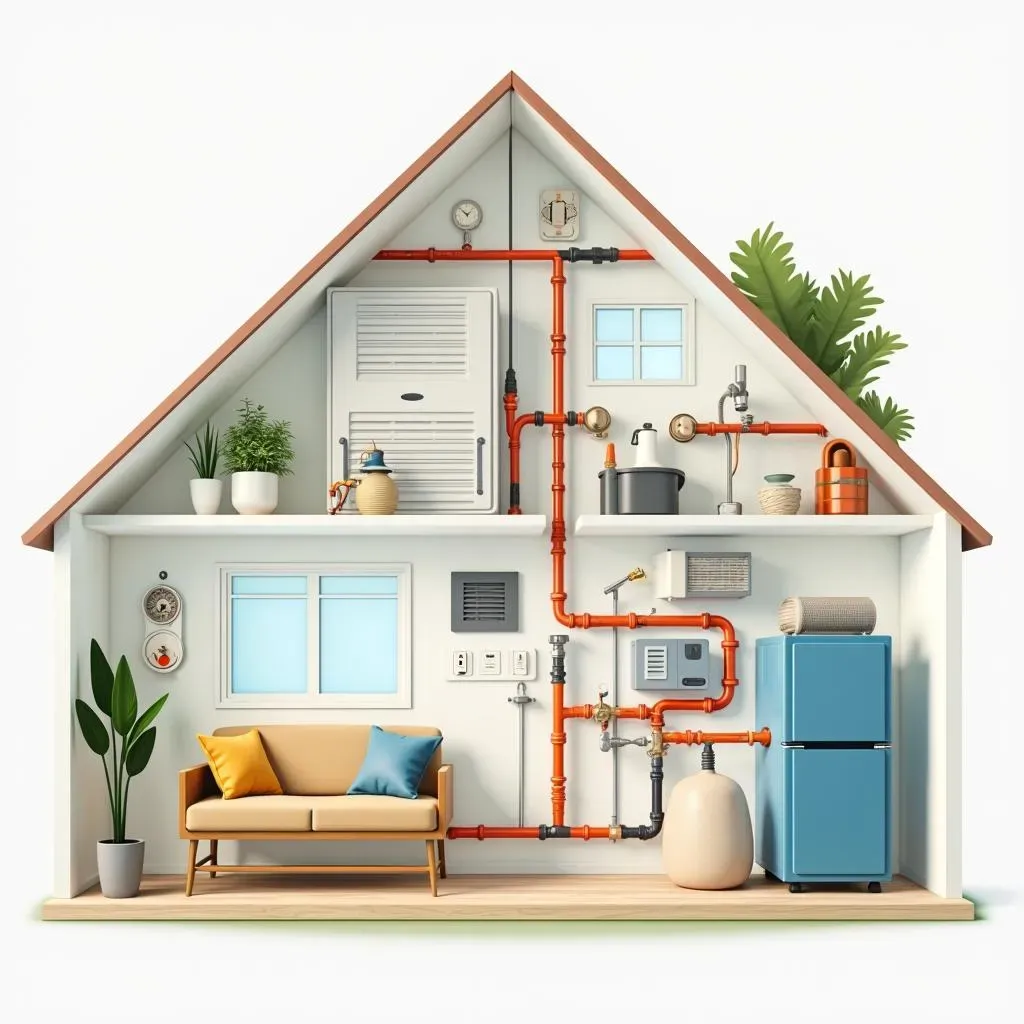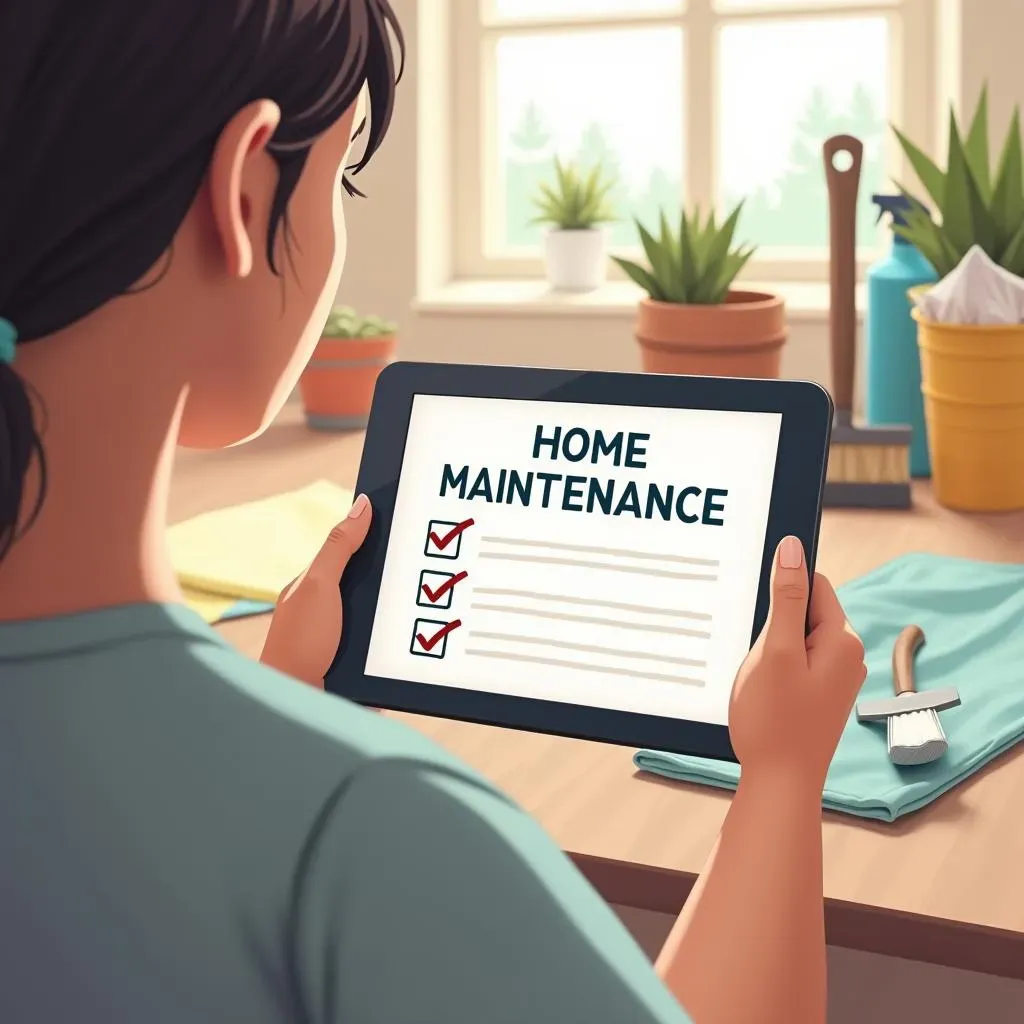Table of Contents
Ever wondered what keeps your home running smoothly? It's more than just a roof over your head; it's a complex interplay of systems working together. This article explores the crucial question: what is home maintenance systems? We'll break down the concept, revealing the essential components that contribute to a safe, comfortable, and efficient living space. From understanding the core systems like plumbing, electrical, HVAC, and more, to learning practical steps for creating your personalized maintenance plan, we've got you covered. We'll demystify the process, making home maintenance less daunting and more manageable. By the end, you'll not only grasp the fundamentals of home maintenance systems but also feel empowered to take control of your home's upkeep, saving you money and potential headaches down the line. Get ready to transform your home maintenance approach from reactive to proactive!
What are Home Maintenance Systems?
What are Home Maintenance Systems?
Understanding the Basics
Imagine your home as a complex machine, with various parts working together to create a comfortable and safe environment. Home maintenance systems are all the interconnected elements that keep this "machine" running smoothly. These systems aren't just about fixing things when they break; they're about preventative care, regular checks, and proactive maintenance to extend the lifespan of your home and its components. Think of it like regular car maintenance – you don't just wait until your engine blows, you change the oil, check the tires, and get regular tune-ups. The same principle applies to your house.
A well-maintained home is not only more comfortable but also more valuable. Regular maintenance prevents costly repairs down the line. It also protects your family from potential hazards, ensuring safety and peace of mind. By understanding and managing your home's systems, you're investing in your future. This article will help you to learn more about what is home maintenance systems, and how to take care of them.
The Importance of Preventative Care
Preventative maintenance is key to keeping your home in top shape. This involves regular inspections and cleaning to identify potential problems before they become major issues. For example, regularly cleaning your gutters prevents clogs that could lead to water damage. Similarly, checking your smoke detectors and carbon monoxide detectors ensures your family's safety. These small, regular tasks can save you a lot of money and stress in the long run.
Think about it this way: a small crack in your foundation, if ignored, can lead to significant structural damage later on. Regular inspections allow for early detection and timely repairs, preventing more extensive and costly repairs down the road. Preventative maintenance isn't just about saving money; it's about preserving the value of your home and ensuring its longevity. It's about protecting your investment. This proactive approach is crucial for maintaining a comfortable and safe living space.
System | Preventative Task | Frequency |
|---|---|---|
HVAC | Filter change, inspection | Monthly/Annually |
Plumbing | Check for leaks, flush water heater | Monthly/Annually |
Electrical | Inspect cords, test GFCIs | Monthly |
Essential Components of Home Maintenance Systems: What You Need to Know
Essential Components of Home Maintenance Systems: What You Need to Know
Understanding Your Home's Plumbing System
Let's start with the plumbing – the lifeblood of your home. This system encompasses everything from your water heater and pipes to your sinks, toilets, and drains. Regular maintenance here is crucial to prevent leaks, clogs, and costly repairs. Think about the havoc a burst pipe can wreak! Regular checks for leaks, ensuring proper water pressure, and occasional flushing of your water heater can save you from significant damage and expense. A little preventative care goes a long way.
Don't forget about your drains! Regularly cleaning them prevents clogs and keeps everything flowing smoothly. You can find some great tips on drain cleaning in our . And if you have a water softener, remember to check and refill the salt regularly. Neglecting this simple task can lead to mineral buildup and impact the efficiency of your entire plumbing system.
- Inspect pipes for leaks
- Clean drain regularly
- Check water heater
The Importance of Electrical Safety
Next up is your home's electrical system. This is where safety takes center stage. Regular inspections are essential to identify potential hazards like frayed wiring, overloaded circuits, and malfunctioning GFCIs (Ground Fault Circuit Interrupters). These seemingly small issues can lead to fires or electrical shocks, so it's worth taking the time to check them.
Regularly testing your GFCIs is a simple yet vital task. These safety devices protect you from electrical shocks in wet areas like bathrooms and kitchens. Similarly, inspecting electrical cords for wear and tear and ensuring you're not overloading outlets are essential for preventing fires. For more in-depth advice, check out our for a comprehensive guide.
Electrical Component | Maintenance Task | Frequency |
|---|---|---|
GFCIs | Test monthly | Monthly |
Cords | Inspect for damage | Monthly |
Outlets | Check for overloading | Monthly |
HVAC: Your Home's Climate Control
Your HVAC system (Heating, Ventilation, and Air Conditioning) is responsible for keeping your home comfortable year-round. Regular maintenance ensures optimal efficiency and prevents costly breakdowns. This includes changing air filters regularly, cleaning vents, and scheduling annual inspections by a professional. Dirty filters restrict airflow, reducing efficiency and potentially damaging your system.
Regular filter changes are the easiest and most impactful tasks you can do. A clogged filter forces your system to work harder, consuming more energy and potentially leading to premature wear. Scheduling annual professional inspections ensures that your system is running efficiently and identifies any potential problems before they become major issues. Our offers valuable insights on this topic.
- Change air filters
- Clean vents
- Annual professional inspection
Creating Your Own Effective Home Maintenance System: A StepbyStep Guide
Creating Your Own Effective Home Maintenance System: A StepbyStep Guide
Building Your Personalized Plan
Creating a home maintenance system that works for *you* is easier than you think! It's all about organizing your efforts and establishing a regular schedule. Start by listing all the essential systems in your home: plumbing, electrical, HVAC, appliances, and exterior elements. For each system, note the typical maintenance tasks (cleaning, inspections, repairs) and their recommended frequency (monthly, quarterly, annually). You can find some great starting points in our .
Next, create a schedule. You can use a simple calendar, a spreadsheet, or even a dedicated home maintenance app. Schedule tasks based on their frequency and importance. For example, changing air filters might be a monthly task, while having your HVAC system professionally inspected could be an annual event. Remember, consistency is key! By establishing a routine, you'll avoid letting small issues become major problems. This proactive approach will save you money and stress in the long run. A well-organized system makes home maintenance less of a chore and more of a manageable process. Don't forget to check out our for further support.
- List all home systems
- Note maintenance tasks & frequency
- Create a schedule (calendar, app, etc.)
Prioritizing Tasks and Setting Realistic Goals
Once you have your initial list and schedule, it's time to prioritize. Focus on tasks that are essential for safety and preventing major damage. For example, checking smoke detectors and carbon monoxide detectors should be at the top of your list. Regularly inspecting for plumbing leaks is also crucial. You might find our helpful here.
Don't try to do everything at once! Start small and build gradually. It's better to consistently maintain a few key areas than to overwhelm yourself and abandon the entire system. Set realistic goals, and celebrate your successes along the way. Remember, even small steps toward a well-maintained home make a big difference. You can also find inspiration and additional tips in our guide to .
Priority Level | Task Examples |
|---|---|
High (Safety) | Smoke detector checks, carbon monoxide detector checks, plumbing leak checks |
Medium (Preventative) | Gutter cleaning, air filter changes, appliance inspections |
Low (Cosmetic/Convenience) | Window cleaning, minor repairs |
Utilizing Resources and Seeking Professional Help
Don't be afraid to ask for help! There are many resources available to assist you with your home maintenance tasks. You can find helpful guides online, consult with professionals, or even hire someone to assist with tasks beyond your skill level. Remember, it’s okay to ask for help or hire a professional when needed. This ensures the job gets done right, saving you time and potential problems down the line. Check out our article on for more information.
Remember, your home maintenance system is a work in progress. Regularly review and adjust your plan as needed. As your needs change, so too will your maintenance requirements. Stay flexible and adapt your system to fit your lifestyle and budget. By staying organized, prioritizing effectively, and utilizing available resources, you can create a home maintenance system that keeps your home in top condition for years to come. You might find our article on useful.
- Online resources & guides
- Consult with professionals
- Hire help for complex tasks